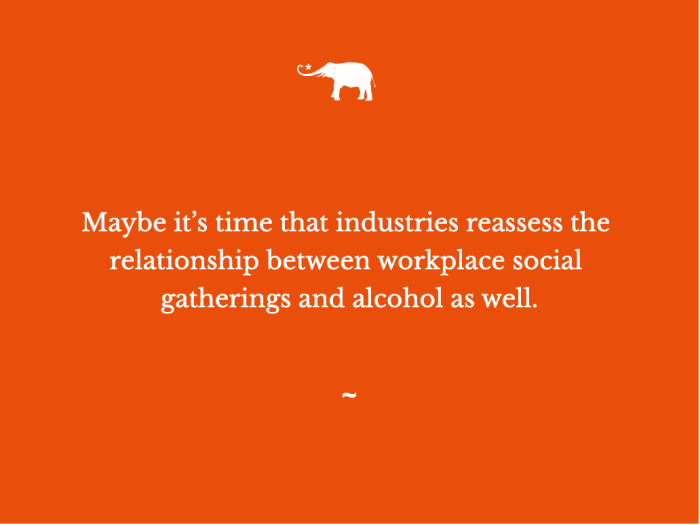While plenty of companies are still fully remote, others are heading back to the office full-time or in hybrid capacities. With this comes the social aspect of being back in the office —company holiday parties, after-work happy hours, stepping out of the office for lunch with coworkers, or taking clients out to dinner. But will interest in sober lifestyles change the way these social events are viewed by employees?
According to Psychcentral.com, being “sober curious” means taking a look at your relationship with alcohol. It doesn’t always mean cutting out alcohol completely, but rather, evaluating how often you’re drinking, how alcohol makes you feel, and reflecting on other health reasons you might want to take a step back from drinking.
The positive effects that cutting back on alcohol intake has on your health can be obvious, but what about other aspects of life? Drinking often can cause drowsiness, difficulty concentrating, slowed reaction time, and poor judgment that not only has an impact on your health but can directly impact other aspects of your life, like your work day. Taking a step back to consider being sober curious or fully sober could change how alcohol has been a staple in workplace social gatherings.
A recent survey conducted by North Treatment Center, a rehab facility located in Huntington Beach, California, explored how employees’ relationships with alcohol has affected their success at work.
1 in 4 respondents in the survey have been embarrassed by something they did or said while drinking with coworkers and 45% said that a stressful workday makes them drink more after work.
The urge to drink heavily and ease the stress of the work day doesn’t just apply to entry-level workers:
The higher up you are, the more likely you are to actually drink on the clock. 2.3% of assistants reported they have drank on the clock, compared to 11.1% of executives.
Social events at the office where alcohol is provided certainly doesn’t help the temptation to drink while on the clock, especially if the employee is under increased stress.
With all of these stats in mind, it’s easy to wonder whether or not workplace gatherings being focused on alcohol really are the best for employees. While individuals across the country are taking the time to reassess their relationship with alcohol, maybe it’s also time that industries reassess the relationship between workplace social gatherings and alcohol as well.











Read 0 comments and reply